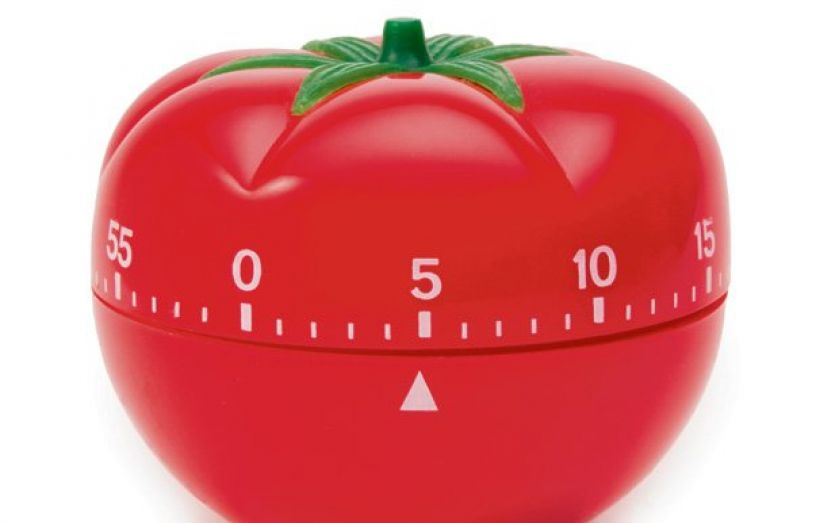Want to improve your focus? Wind up a kitchen timer

The Pomodoro Technique claims to make the clock your friend, but it has a big flaw
THERE may be a small device lurking in your kitchen that could transform your ability to get things done. The tomato-shaped cooking timer, known in Italian as a pomodoro, was first identified as a vital tool for better time management by Francesco Cirillo in the 1980s. The Pomodoro Technique was born. And this proudly low tech approach has become one of the most popular methods of honing productivity ever since, inspiring a book, courses, and an online community of Pomodorists – who work towards becoming officially certified masters of the technique’s main objectives. But how does it work?
TIME IS YOUR FRIEND
Central is the principle that most of us make an enemy of time. We either race to get things done or procrastinate, and Cirillo posits that such disorder is at the centre of poor productivity. But you can stymie the tendency of work to fill whatever time is allotted to it by planning out what you need to do in advance, and dividing this prioritised list into time-defined chunks.
It’s an approach Mark Twain would’ve endorsed. “The secret of getting started”, he wrote, “is breaking your complex, overwhelming tasks into small manageable tasks, and then starting on the first one.” While you lose time initially, incremental task management can lead to fewer mistakes and better prioritisation.
And this is where the timer comes in. Once you’ve written your list, you apportion 25 minute slots to each item and work until it pings. While there are online alternatives, the physical process of winding up the tomato is meant to reinforce determination.
ECONOMIES OF SCALE
Why bother? First, focused work on a specific task can help manage distractions. A University of Toronto study has suggested that 12 per cent of the average company’s payroll is taken up by unproductive use of email. But if you set yourself 25 minutes each morning to deal with your inbox, and return at set intervals, you could more easily prevent it from disrupting other tasks. It also gains you an edge in economies of scale. If you’re processing lots of similar jobs in one go, you may be able to do more in a single day than if you’re constantly breaking off other work to look at your latest unread message.
Secondly, it could help prevent burnout. Pomodoro’s mandated minibreaks will make little difference to fatigue (Portland State University researchers found no relationship between going outside for fresh air and vitality). But rigorous performance measurement over each stage will give you a clearer idea of where you are within the overarching project – and hopefully quash any feelings of desperation.
STRAIGHTJACKET
Yet Pomodoro has a flaw. It’s not just that it’s untenable for every employee in an open plan office to have a mechanised tomato pinging every 25 minutes. The enforced zen of the technique makes it the enemy of rapid response. While Cirillo rightly argues that many tasks are not truly urgent, and research into the habits of highly succesful people by Mason Currey found that routine makes people more productive by warding off the “tyranny of moods”, it is arguably only really useful for project work – not jobs that require you to keep on top of several different tasks at the same time over the same day.
And while Pomodoro claims to make the clock our friend, it surely also risks constraining us in a new time-defined straightjacket – albeit one we wind up ourselves.
App to track time and expenses
Harvest
Free
Designed with small businesses in mind, Harvest allows users to track the time spent, and expenses incurred, on specific tasks. Accessible through PC, Mac, and mobile, it also allows managers to oversee and approve staff timesheets. Alongside easy creation of invoices by automatically organising billable time, the app enables users to track how time is being used across an organisation, with an eye to improving productivity.